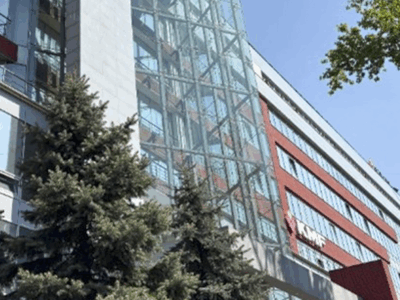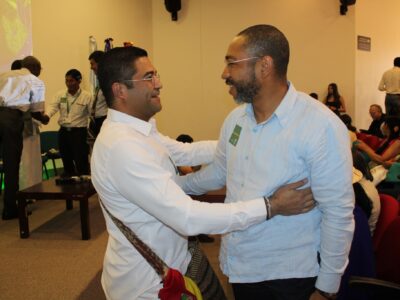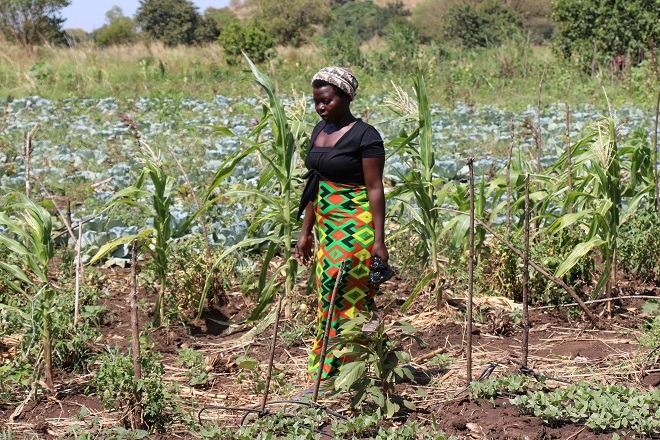
Growing up on a small homestead farm left me with the desire to grow some of my own food because no store-bought produce ever came close to the incredible flavor of fully vine-ripened vegetables. I knew the key to a successful garden was the soil, a living system that holds and nurtures a plant’s roots—the pipelines for nutrients.
In a pinch, you can pump fertilizer and irrigation, or plant easy-to-grow zucchini. But if you want a more self-sustaining garden that is resilient to stressors, like dry spells, and friendlier on your wallet and the environment, transforming the soil into a rich and benevolent underworld is the way to go.
This basic rule of (green) thumb is a lesson for agricultural development, too. Much of international development focuses on helping households become more resilient, especially just-above-subsistence households living in challenging, resource-scarce environments.
The market systems, or networks involved with trading a product or service, are like soil. When you improve a market system, you root households in fertile ground, where they can experience grow sustainably in the face of challenges, such as droughts, conflicts, and erratic global markets.
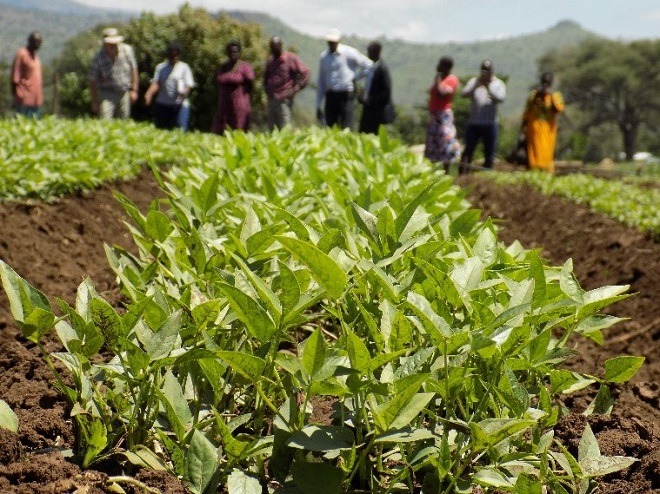
Harnessing Markets to Improve Resilience in Uganda
As an associate technical director specializing in market systems at ACDI/VOCA, I led an assessment of our Resiliency through Wealth, Agriculture, and Nutrition (RWANU) project, funded by USAID’s Office of Food for Peace. Through this assessment, I gained a deeper understanding of how market development drives resilience.
The RWANU project focused on improving both nutrition and market systems to reduce food insecurity among vulnerable populations in Uganda’s southern Karamoja. Market systems interventions targeted critical gaps in crop, livestock, honey, and financial market systems.
Our research team interviewed 18 agricultural producer groups and 34 other value chain actors. They found diverse examples of how the project’s market system interventions improved not only the resilience of households, but also the market systems themselves.
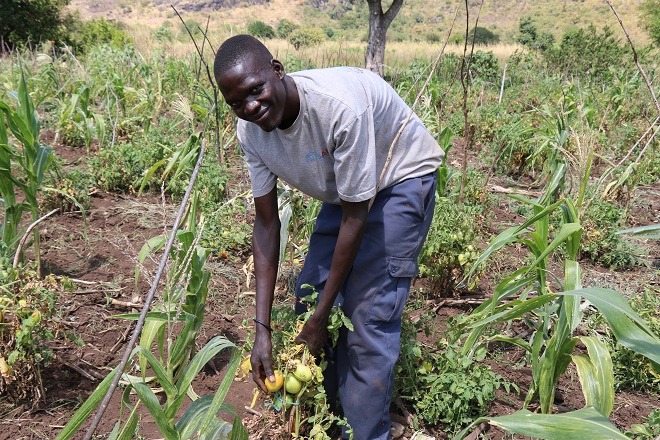
Helping Markets Work Better for Vulnerable Populations
On a household level, most participants said that receiving credit and grants, starting block farming and grain bulking, and selling to premium honey markets helped them diversify their incomes, making them more resilient to market shocks.
Many also said they had better access to affordable inputs and services that helped them deal with droughts and pests thanks to the local input dealers and animal health service providers that RWANU helped establish.
With RWANU’s support, farmers formed village savings and loan groups. They began saving together and taking small loans from those savings, improving their economic resilience. They also adopted more adaptive agricultural techniques, gaining improved seeds and post-harvest equipment.
Together, these interventions led to better food security, as households had more purchasing power, crops, and assets like livestock. Women reported that they felt more involved in decision making and income generation after joining livestock groups, beginning honey production, and receiving grants.
This increased access to finance, inputs, and services supported new and different businesses. Soon the market became more resilient, too, with a diversity of products, buyers, sellers, and service providers. With more mutually beneficial relationships happening across the value chain, participants experienced better communication, trust, and cooperation. They felt the project’s support had built the foundation, or prepared the soil, for them to maintain and grow their enterprises.
RWANU’s experience shows that strategically chosen market system interventions can foster resilience and help communities move toward a sustainable escape from poverty. Just as good soil requires new organic matter to stay fertile, critical market systems need strengthening to meet evolving challenges and benefit more households.
To learn more, read a summary of the assessment and the full report.
Comments
